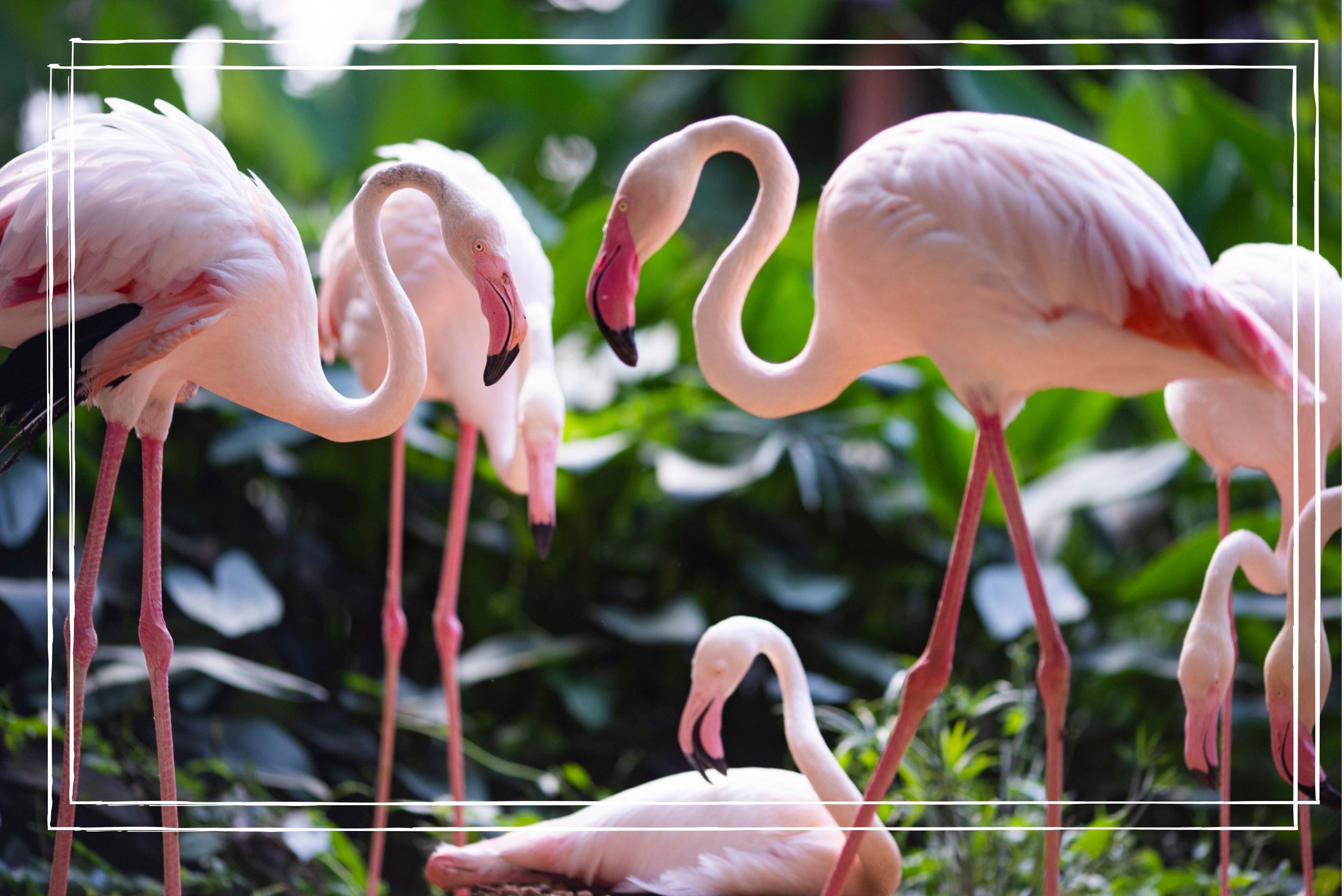Why are flamingoes pink? The surprising reason behind their colour will impress your kids


We've just stumbled upon the real answer to one of those classic questions kids love to ask: why are flamingoes pink? The answer is practically guaranteed to give your kids a giggle.
Kids are full of questions, aren’t they? It can sometimes feel like their mission is to dream up the trickiest ones just to keep us on our toes. But let’s face it—impressing your kids with mind-blowing facts is one of the best parts of being a parent. Answering big questions like, “How were the pyramids built?” or “Why do birds sing in the morning?” is a fun way to keep them entertained, especially if summer holiday boredom is peaking.
Now, we’ve got a new nugget of knowledge about why flamingoes are pink that’s sure to leave your little ones... erm... tickled pink. Flamingoes aren’t born pink, and their colour isn’t just for show. The secret lies in their diet. That’s right—flamingoes get their distinctive pink hue from what they eat. We told you your kids would love this fun fact!
Flamingoes feast on foods like algae and tiny sea creatures that are packed with red and orange pigments called carotenoids. These pigments are also found in other colourful foods like carrots and tomatoes. When flamingoes chow down on these goodies, their bodies absorb the pigments and store them in their skin and feathers, which eventually turns them pink.
Not all flamingoes are the same shade of pink, though. For example, a flamingo living in an area rich in carotenoid-packed foods will likely be a brighter pink than one with less access to those foods. This is why some flamingoes look Barbie-pink while others lean more toward orange or even red—it all depends on their diet and how much pigment they’re getting. This also explains why flamingoes in the wild tend to be much 'pinker' than those you see at the zoo. Captive flamingoes don’t always get a diet as rich in carotenoids, so their feathers might not be as vibrant.
Flamingoes aren’t the only animals whose colour is determined by what they eat. The same goes for other birds and fish, like American goldfinches and salmon.
A post shared by KATE LAWLER (@thekatelawler)
A photo posted by on
And did you know that flamingoes can lose their pink, too? (We learned this from Kate Lawler originally.) It often happens when they're raising chicks. Yep, motherhood drains so much from a mama flamingo that her 'pinkness' can fade or even disappear. Aw. Good news, though. As a chicks grow in independence and the intensive days of early motherhood ease, the flamingo can eventually get her pink back.
Parenting advice, hot topics, best buys and family finance tips delivered straight to your inbox.
So, next time your child hits you with the classic “I’m bored!” during the summer holidays, ask them if they can guess why flamingoes are pink. Then, wow them with your newfound knowledge. And if that doesn’t make their heads spin, throw in another fun fact: do they know what a group of flamingoes is called? It’s possibly the best collective noun out there—a flamboyance!
Kids love facts like this, especially as the school summer holidays drag and they start to run out of ways to keep themselves occupied. If you're looking for more fascinating facts to wow them with, we've got We just found out where ‘Marmite’ got its name and We just found out what HARIBO actually stands for.

Heidi is a seasoned parenting journalist with over 15 years of experience. She has contributed to numerous UK national newspapers, including The Guardian, The Times, and The Telegraph. Her work has also appeared in a variety of print and digital magazines, such as Psychologies and Mother & Baby, where she was Shopping Editor for six years. In this role, she specialised in consumer features, including buying guides and baby gear reviews. Heidi is also a mum of three.